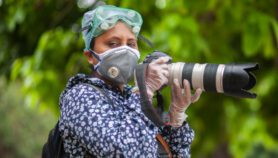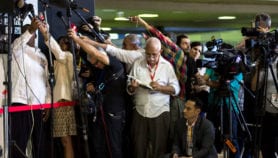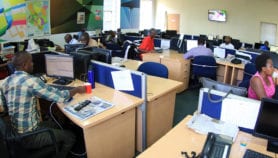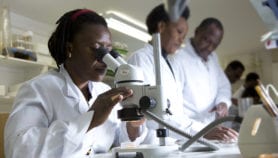12/07/19
Bridging the global divide in science journalism
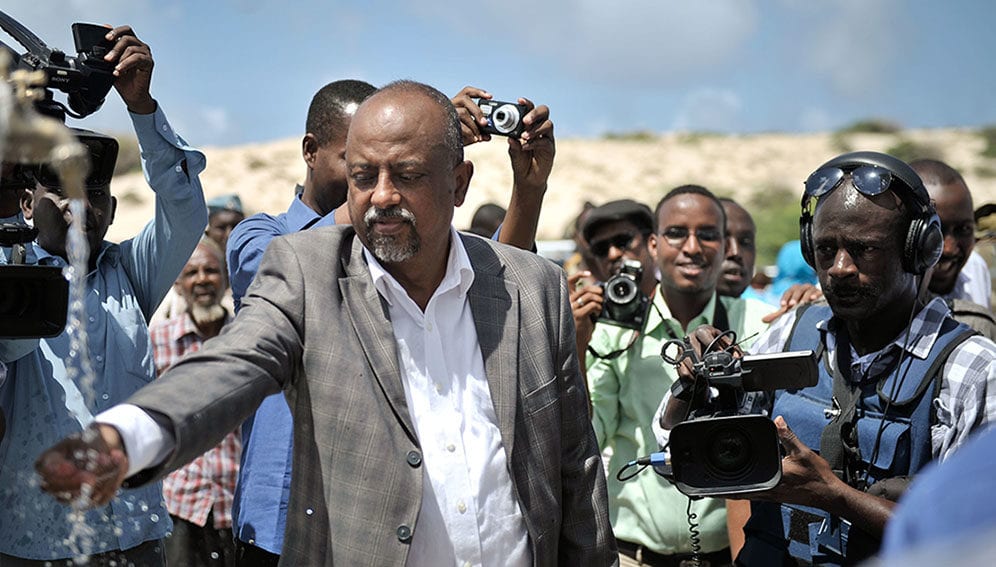
By: Esther Nakkazi
Send to a friend
The details you provide on this page will not be used to send unsolicited email, and will not be sold to a 3rd party. See privacy policy.
Freelance science journalists all over the world face many challenges, but for those of us working in the Global South, there are particular difficulties: language barriers, bias, and discrimination, to name a few.
At the World Conference of Science Journalists (WCSJ) in Lausanne, Switzerland, last week, I had the opportunity to speak at a session on this issue.
Freelancers from Asia, Africa, Latin America and the Balkans joined the discussions about the challenges we face, with editors responding by sharing their experiences and advice.
“In their struggle to add diverse voice in communicating science worldwide, Southern freelancers often face many challenges and today it is doubly hard,” said Dyna Rochmyaningsih a freelance journalist from Medan, in Indonesia’s North Sumatra.
Problems with payments was high on the list of challenges, with journalists citing issues ranging from late payments and discriminatory rates to exorbitant bank charges. Many freelancers also lacked confidence when it came to negotiating good rates.
In their struggle to add diverse voice in communicating science worldwide, Southern freelancers often face many challenges and today it is doubly hard
Dyna Rochmyaningsih, freelance journalist
“As an international freelancer, I never used to ask for more than what I was offered for a job,” said Emiliano Rodríguez, who led this discussion. “Getting my story published was by itself an amazing privilege. But that's not true — nor should it be.”
The response from editors was clear: know how long the payment will take, send reminders and don’t assume that no answer means “no”. To avoid discriminatory pay rates, which most editors said were rare, the suggestion was “just ask” — ask for more money, ask why payment is late, ask what the rates are. And if you don’t trust the answers, check on the website whopayswriters.com.
Language was another problem facing freelancers from the Global South. English not being the first language for most means it can be difficult to write in a certain way. Some documents may be available only in the local languages, and translating and using information from these for stories can be hard.
Alexandra Nistoroiu, a freelancer from Romania who led this discussion, asked if there was a way we can turn our proficiency in non-English languages into an advantage in an English-dominated media.
Questions of equality, bias and discrimination also came up, as well as the issue of trust. Freelancers felt editors did not trust their long experience and diverse knowledge, and their story angles were often considered not global enough.
Journalists spoke of the difficulties of getting answers from international organisations because their name was not well-known, or due to bias.
However, the editors who work with us also had their own experiences, including the lack of adequate training for some freelancers. The turnover of science journalists in the Global South is high and there are often no minimum training requirements.
Editors highlighted the difficulty of locating freelancers in remote locations and problems such as low bandwidth and power failures, making collaboration between the reporter and editor difficult.
For the editors there was one bottom line – “ask us”. “Do not be scared of asking the editors if you have any questions.”
Freelancers at the session asked editors for remote mentoring, and the World Federation of Science Journalists (WFSJ) was asked to create a directory of science freelancers.
Hopefully this will go some way to bridging the gap between journalists in the Global South and editors worldwide.




